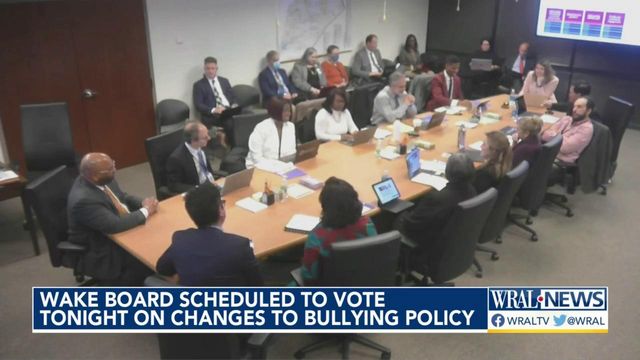Wake schools revises bullying and harassment policy
The Wake County Board of Education is making some tweaks to its anti-bullying and anti-harassment policy.
The board approved the changes Tuesday night.
They do a few things, including adding students with attendance issues as a group of concern.
The revised policy also states that a person is not bullying if a student is merely uncomfortable with a subject being taught in class.
The school board has gained five new members since drafting the latest revision to the policy, though no one voted in opposition to the changes Tuesday night.
The board is making the changes after former Board Member Roxie Cash said students who were missing school aren't being helped enough to return to school. Some students who are bullied may not be attending school as much.
Board Member Chris Heagarty said the board doesn’t plan to stop with Tuesday night’s voter however.
Heagarty said he wants the board to look into how to better handle bullying or other concerning activities that take place off campus.
A 2021 U.S. Supreme Court decision, involving a student and a Snapchat post, ruled that schools have limited ability to police student speech that takes place off campus.
“There are ways that we can approve the policy to reach beyond the lines of our current policy to show off-campus behavior that has a real and measurable impact of the health and safety of students on campus or is directly related… is something we can take action toward,” Heagarty said.
Schools have ethical responsibilities to make people aware of threats or other potentially troublesome behavior, even if it takes place off campus, he said.
Bullying is always a top-of-mind concern for families and educators.
A survey this spring found more than a third of Wake County Public School System teachers believe bullying, including cyberbullying, was a problem at their school. Almost all teachers also believed students were comfortable reporting instances of bullying.
Statewide, the spring survey showed more than half of principals believe cyberbullying is a problem.











